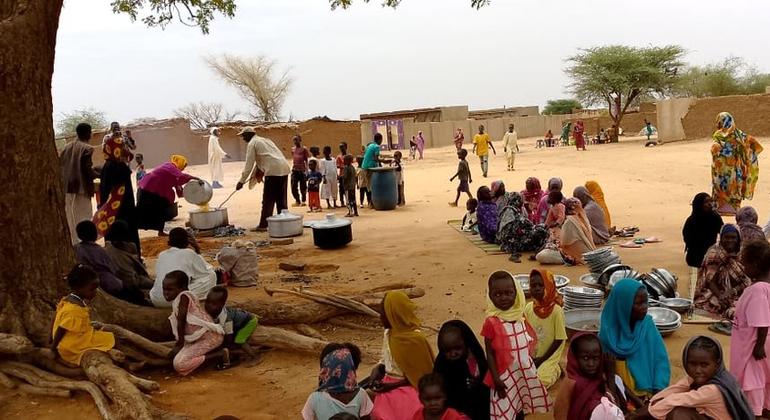Sudan opens Adre border crossing to facilitate humanitarian aid access


The vital humanitarian corridor will allow the United Nations World Food Programme (World Food Programme) to scale up assistance to 14 areas facing famine in Darfur, Kordofan, Khartoum and Al Jazirah.
The convoy is ready to leave
“When we talk, Two convoys carrying nearly 6,000 tons of food and necessities for about half a million people are being loaded onto trucks.“will be delivered to famine-prone areas in the northern, central and western Darfur states as soon as official notification and permits are received from the Government,” said Leni Kinzli, WFP Sudan spokeswoman.
Just two weeks ago, Famine has been confirmed in the Zamzam displacement camp near El Fasher, the war-torn capital of North Darfur, which is home to more than 400,000 displaced people.
In total, WFP aims to assist up to 8.4 million people by the end of the year,
The war in Sudan – which broke out 16 months ago between rival military forces, the Sudan Armed Forces and the Rapid Support Forces – has devastated food production, destroyed vital markets and cut off community support.
Along with fierce fighting, the prolonged rainy season has caused major obstacles in delivering aid, as flooded roads have halted relief convoys.
“More than 50 trucks carrying about 4,800 tons of food and nutritional assistance, enough for about half a million people, are stuck in various locations. via Sudan and cannot move to their final destination because the roads are flooded and impassable,” said WFP’s Kinzli, stressing that humanitarian agencies urgently need to “witness the actual opening (of Adre) and see trucks moving across the border as soon as possible.”
Long-term effects of famine
Echoing that message, the United Nations World Health Organization (WHO) highlighted the immediate and long-term impacts of poor nutrition and severe food insecurity among vulnerable people.
A mild infection in a malnourished person with a weakened immune system can easily turn into a catastrophic illness, WHO spokeswoman Dr Margaret Harris told journalists in Geneva.
Children in particular can die very quickly from what could be a minor infection, she said, adding that after 16 months of fierce fighting, Sudan is ill-equipped to provide life-saving medical care, with up to 80 percent of hospitals “non-functional”.
She added: “People are dying simply because they don’t have access to basic and essential healthcare.. We are seeing reports of cholera, measles, malaria, dengue fever and meningitis from several states.”
Preventable tragedy
The incident comes amid ongoing conflict, including a bombing on Wednesday that devastated a school and a market in the city of El Obeid, killing five girls and wounding 20 other children.
United Nations Migration Agency IOM also warned that Sudan was at a “tipping point” and that there would be tens of thousands of preventable deaths from hunger, disease, floods and violence in the coming months without a greater global response.
According to IOM, more than 10.7 million people are seeking safety within the country, and many have been displaced twice or more. Almost all internally displaced people across Sudan – 97 percent – are in areas with severe or worse levels of food insecurity.




